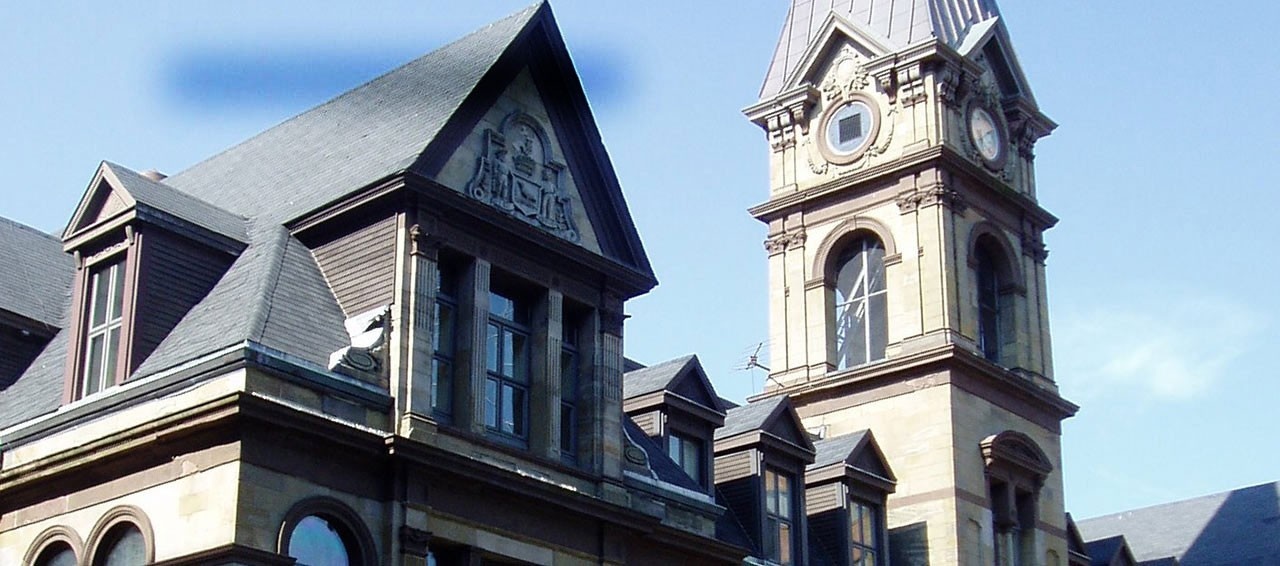Cameron Foster
BA ’10, JD ‘13

I am time and again impressed by how my Dalhousie roots have continued to support and enhance my pursuits
Cameron Foster was born in the small town of Florenceville, New Brunswick. As an individual raised in a rural area with a keen sense of community, it was easy to take Dalhousie’s widespread and supportive network of people for granted.
“However, looking back on the connections I made during my seven years of studies across two degrees, I am time and again impressed by how my Dalhousie roots have continued to support and enhance my pursuits, no matter what the project or my location,” said Cameron
Cameron found his way into the Political Science department as an after-thought. He began studies at Dalhousie focusing on the fundamental sciences; chemistry and biology. Despite finishing his freshman year on the Dean’s List, Cameron felt the need to explore other subjects of study.
“I am a firm believer it’s never too late to pursue something that interests you, and that hard work will always pave the way to help you to focus on what you are passionate about.”
For Cameron, that was the interactions between various branches of the humanities and their relationship with the political organization of society. Cameron’s second year provided a well rounded course load: Political Thought, Introductory courses for Law and Philosophy, as well as History of Popular Music. Those subjects offered a blueprint for the rest of Cameron’s BA. Majoring in Political Science with a minor in Law & Societies, he would opt to focus on international politics and the philosophy of ethics, but also found time for subjects running the gamut from religious studies and recording studio techniques to politics of the environment.
“My ‘aha’ moment was in World Politics (POLI 2520) with Professor Frank Harvey. Half-a-dozen students were provided the opportunity to present in front of the class in lieu of writing a mid-term paper. I spoke on the potential for Canada to provide logistical military support to reduce civilian casualties occurring during the ongoing war in Darfur, Sudan. I opted to tackle that issue because it was receiving wide-spread but generally shallow coverage in the daily news. The question of how Canada could or should get involved was a tricky problem, especially given our substantial commitment to the mission in Afghanistan at that time. After I presented, a student from South Sudan came up to thank me for raising awareness about the conflict with our class. That moment humbled me and re-affirmed both how small the world can be and the potential strength of our interconnectedness when properly harnessed.”
Cameron’s BA was an important asset for when he moved on to studies in law. The use of critical thinking methods such as assessing competing theories, as well weighing and isolating interacting factors to determine how they influence outcomes, whether political or otherwise, are handy tools when trying to understand and apply legal precedents.
“Of course, no two cases are the same,” Cameron notes, “and the key to moving any legal issue forward is determining what facts are at play which distinguish the present matter from the past law. My studies in Political Science constantly relied on that method of thinking: comparative analysis and counterfactuals; these were the same modes of thinking I used in contracts or constitutional law.”
Cameron is now an associate with O'Donnell, Robertson & Sanfilippo in Toronto, Ontario, where he is beginning a practice in litigation and advocacy and is excited for his career to unfold as a proud Dalhousie alumnus. Cameron also strives to be engaged in his community whenever possible, a sense of obligation that originated and was fostered during his time at Dalhousie.
